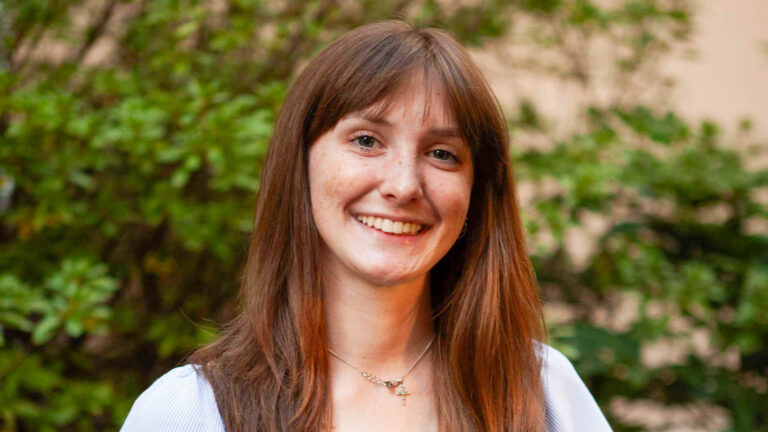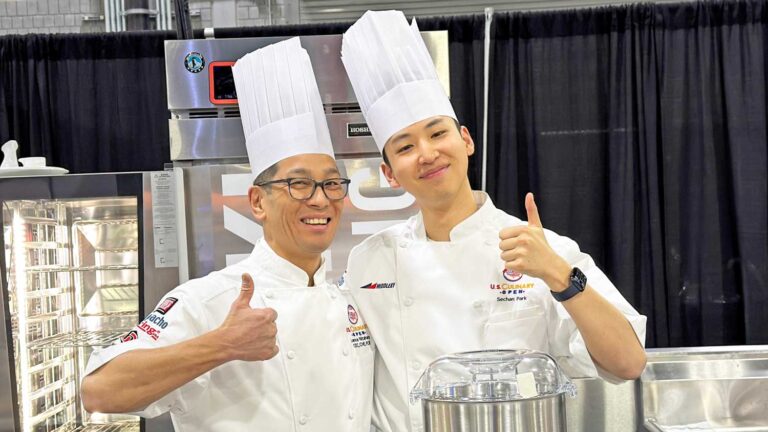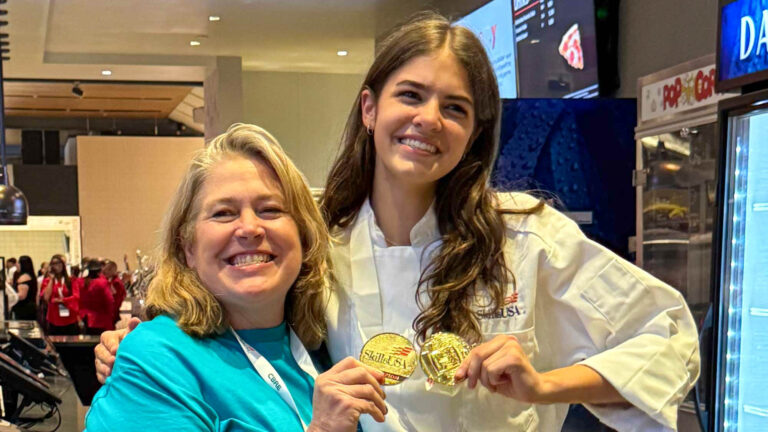“If I can help this person — because I know what I went through — then I want to be able to do that.”
Samantha Jinnah’s path into health care has been gradual. Trips to her uncle’s neurology lab piqued her interest. She considered becoming a doctor.
“I didn’t know if I was going to be able to do that, because I was never a blood-and-guts type person,” Jinnah says.
A graduate of Olympic High School in Charlotte, N.C., she tested the health- care waters by earning a certified nurse aide (CNA) license at Wilkes Community College in Wilkesboro. She took a job at Wilkes Regional Medical Center on the medical-surgical floor.
Soon after, she moved to Louisiana to care for her grandmother, who’d been diagnosed with Parkinson’s disease. She enrolled in the licensed practical nurse (LPN) program at Northshore Technical Community College in Bogalusa.
Before she left North Carolina, Jinnah had sought treatment for unusual gastrointestinal symptoms. And within six months of moving to Louisiana, she woke up one morning experiencing numbness on her left side.
From a medical perspective, she was intrigued, thinking,“This is new,” as she poked at the numb areas.
Jinnah went to the hospital, where a CT scan showed two abnormalities in her frontal lobe. An MRI was ordered, revealing spots that her doctor said looked to be multiple sclerosis (MS).
The young woman stepped outside the hospital and called her parents, who live in Washington, D.C. On her own and about to be hospitalized for an extended time, she was scared. However, the nurses helped her understand the tests and made grasping the situation manageable.
Jinnah has always wanted to touch lives and make a difference. For two years as a CNA, she worked on a surgical unit and both enjoyed and was recognized for her direct patient care. “Then I started getting sick,” she says.
Caregiver, now patient
“I didn’t know what was happening to me. All of a sudden, I was the patient,” Jinnah explains.
“I had amazing nurses who held my hand, cried with me and encouraged me on the road to diagnosis,” she adds. “That’s when I realized how much I was impacted by great nurses, and that was where I was supposed to be.”
Jinnah has relapsing-remitting MS (RRMS). Her treatment has changed three times, most recently to a more aggressive protocol. She says support from family, friends and her health care team have made a huge difference in her journey with the disease.
Her positive outlook helps, too. She recalls her dad’s response to the news of her diagnosis.
“‘Wow, you’re handling it well,’”he said, “and I’m like, ‘Well, am I supposed to be freaking out about it? That’s not going to change anything.’”
It’s this stoic acceptance and calm information-seeking that keep her grounded. “I learn something new about it constantly and build on that,” Jinnah says.
“You can do one of two things, and this is the outlook that I have: When you have a disease like multiple sclerosis or lupus or anything like that, you can own the disease and say, ‘Yeah, I have it,’ or you can have the outlook of ‘My disease owns me.’”
Nothing owns Jinnah. But, when her nursing instructor, Shanda St. Pierre, urged her to compete in SkillsUSA’s Medical Math contest, she hesitated — in high school, she’d needed tutoring in math. Nevertheless, Jinnah competed in the event. Now she smiles at being recognized as her state’s gold medalist. She earned bronze in Medical Math at nationals and says the experience has boosted her confidence.
Jinnah graduated in December and passed the National Council Licensure Examination (NCLEX) to earn her LPN. She started working at Resthaven Living Center in Bogalusa and now has a position in the medical surgical department at St. Bernard Parish Hospital in Chalmette. Her next step is becoming a registered nurse, then an integrative medicine nurse practitioner with a focus on chronic illness.
“Treating chronic illness can be extremely difficult,” she notes, “but I feel that being a patient myself, it allows me to better relate to my patients and tailor an integrative treatment plan to meet their needs.
“You never know what someone is going through, both medically and psychologically. I chose to pursue nursing, because if I can be the light in the dark for even one person during their time of need — their journey — I have done what I set out to do.”










